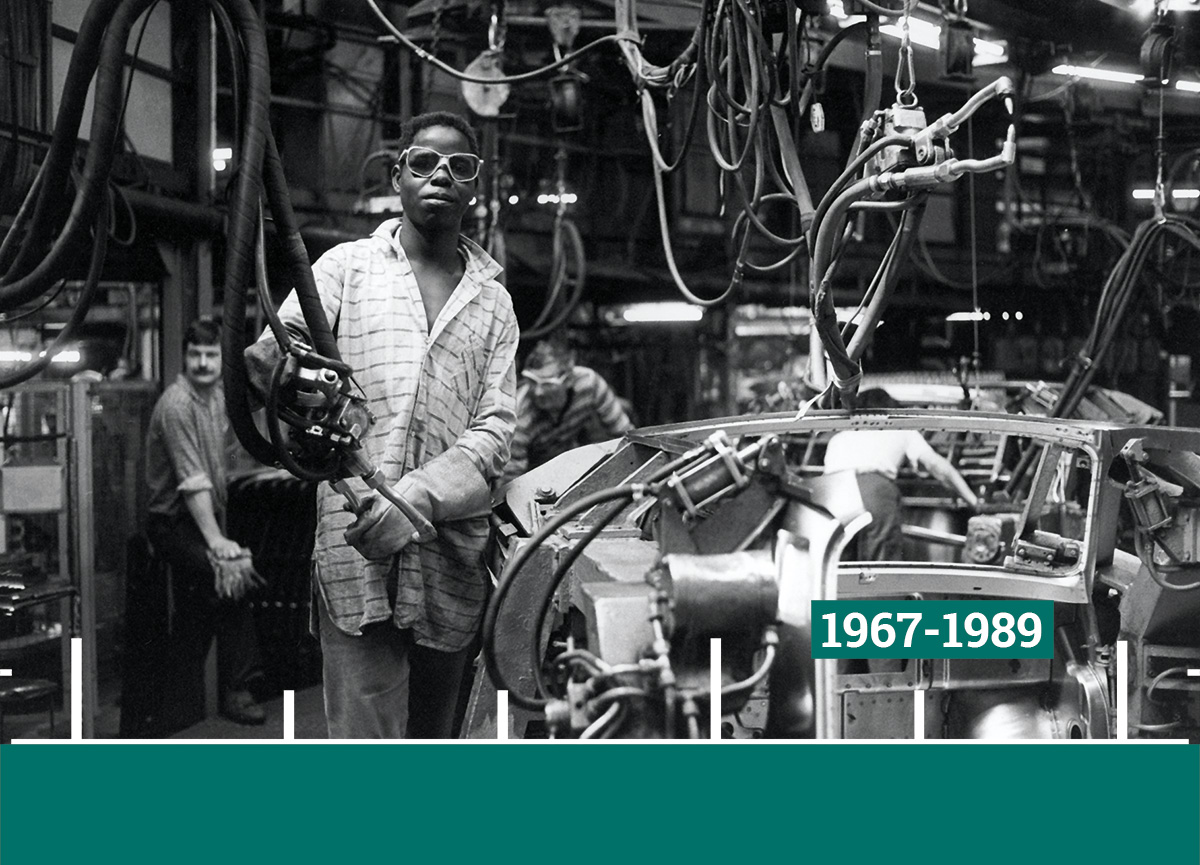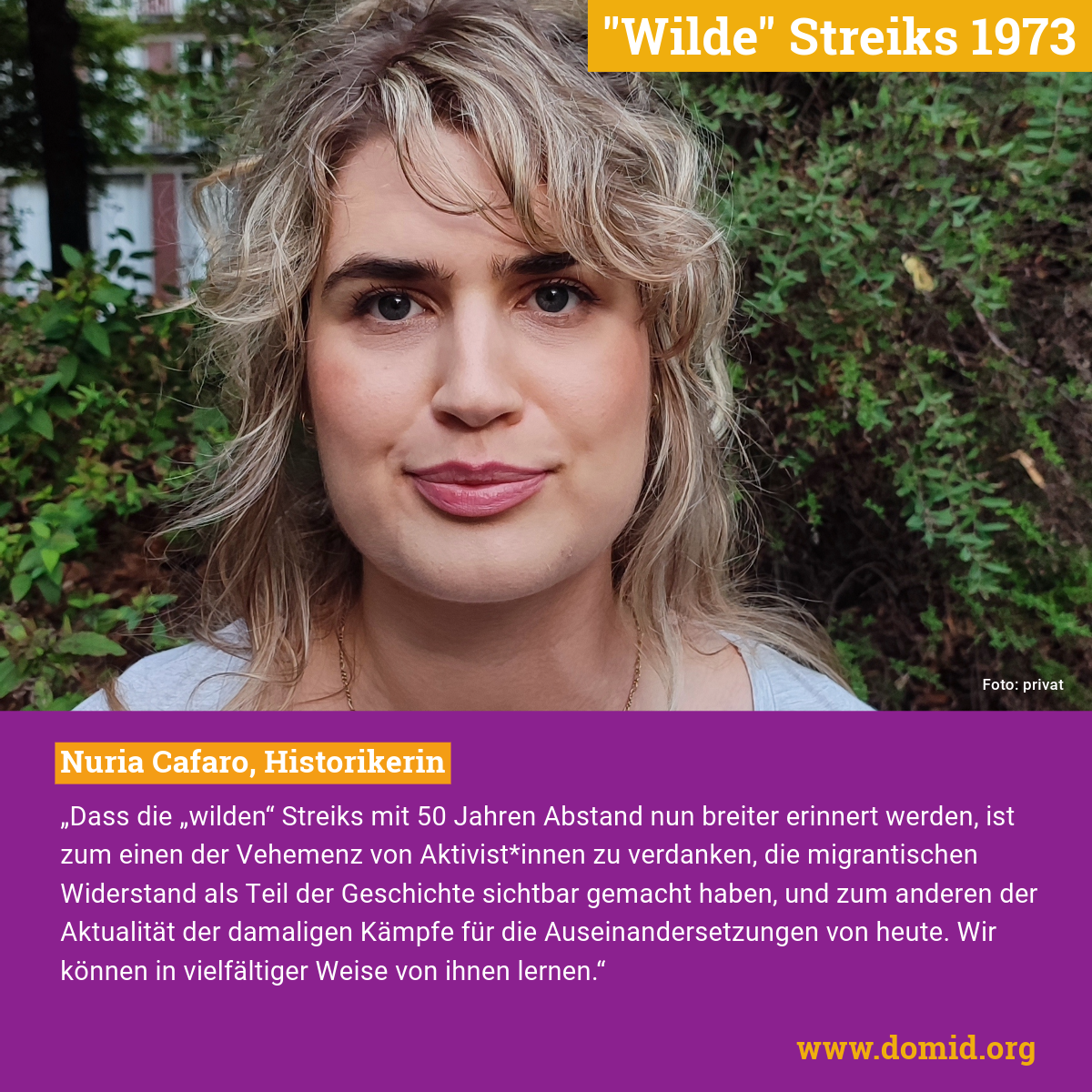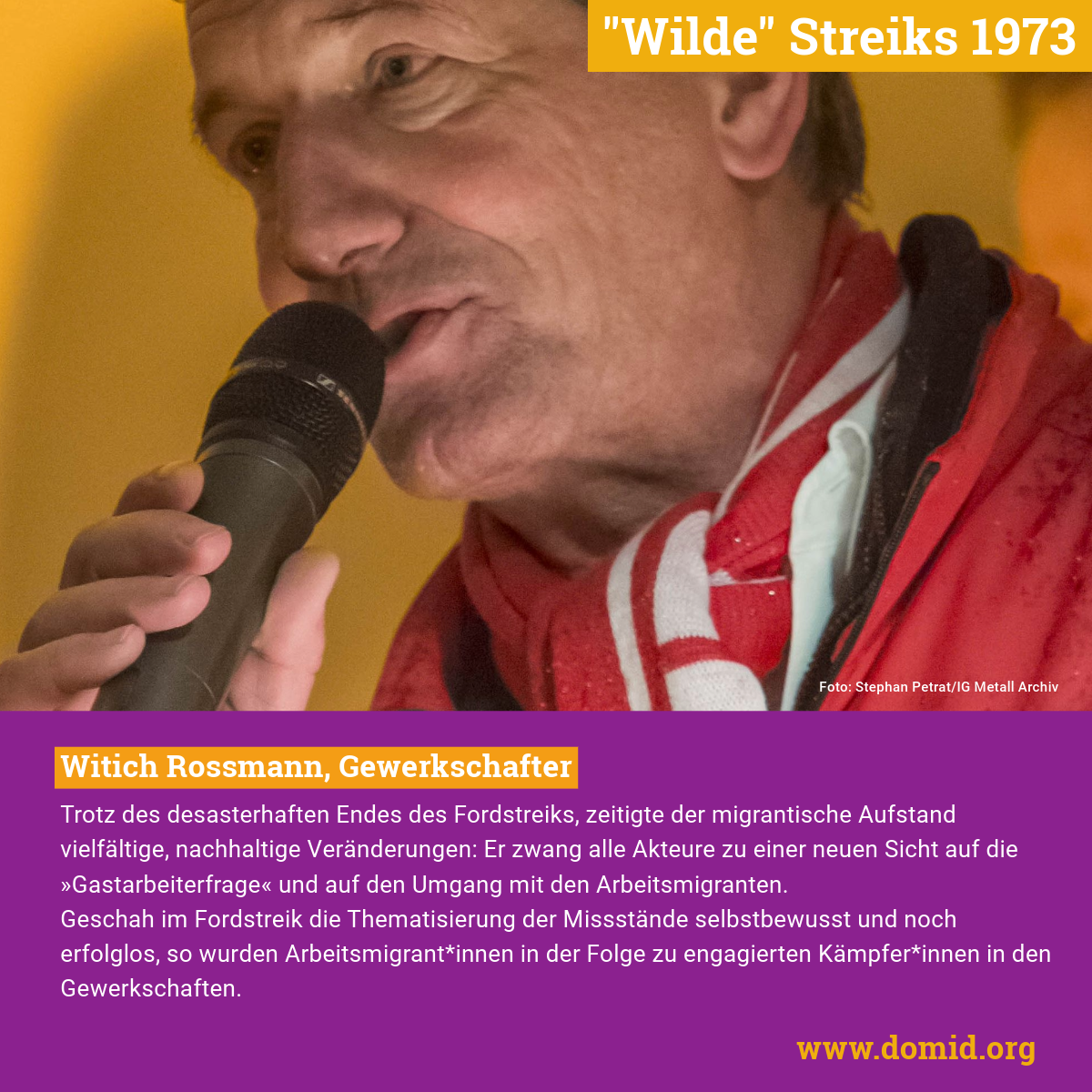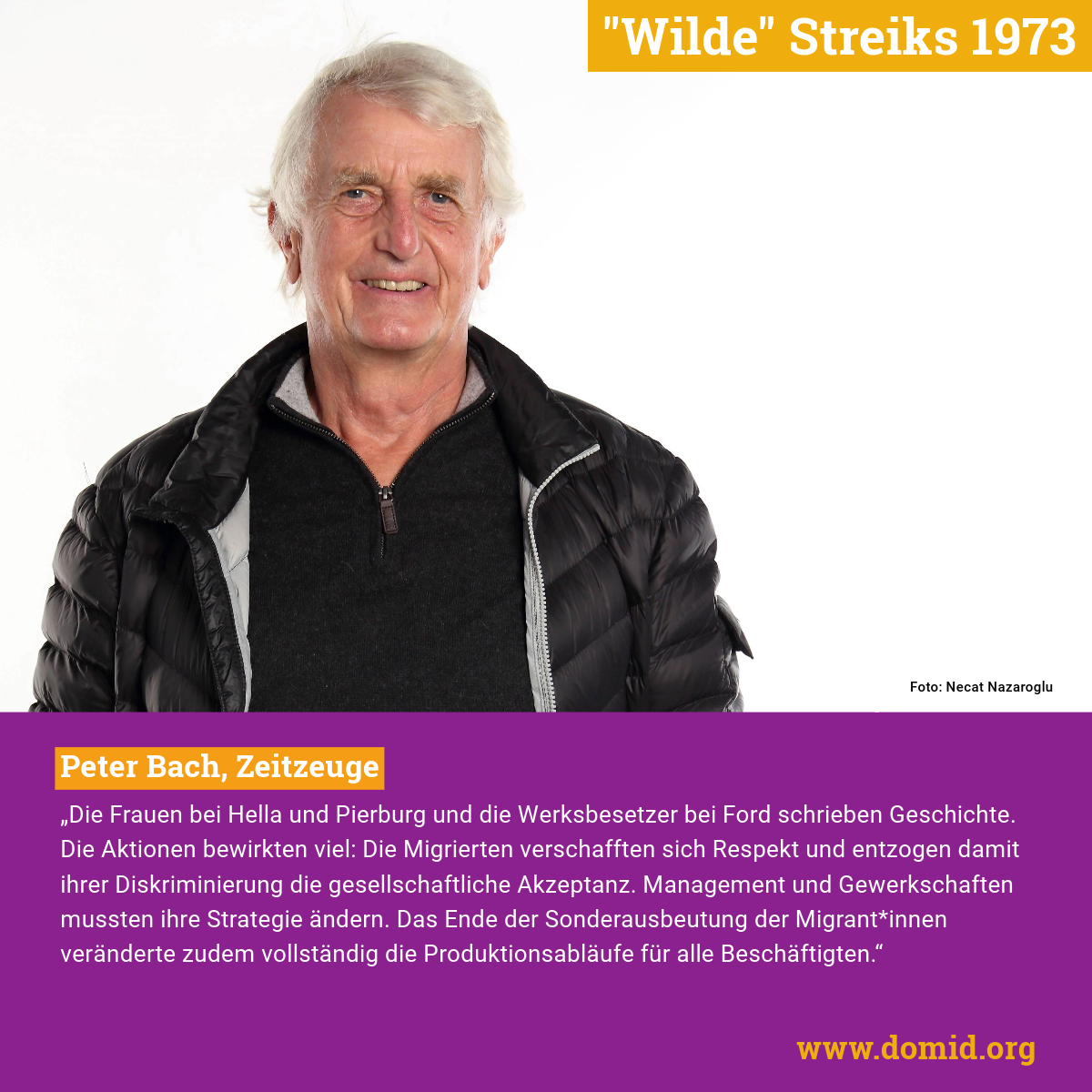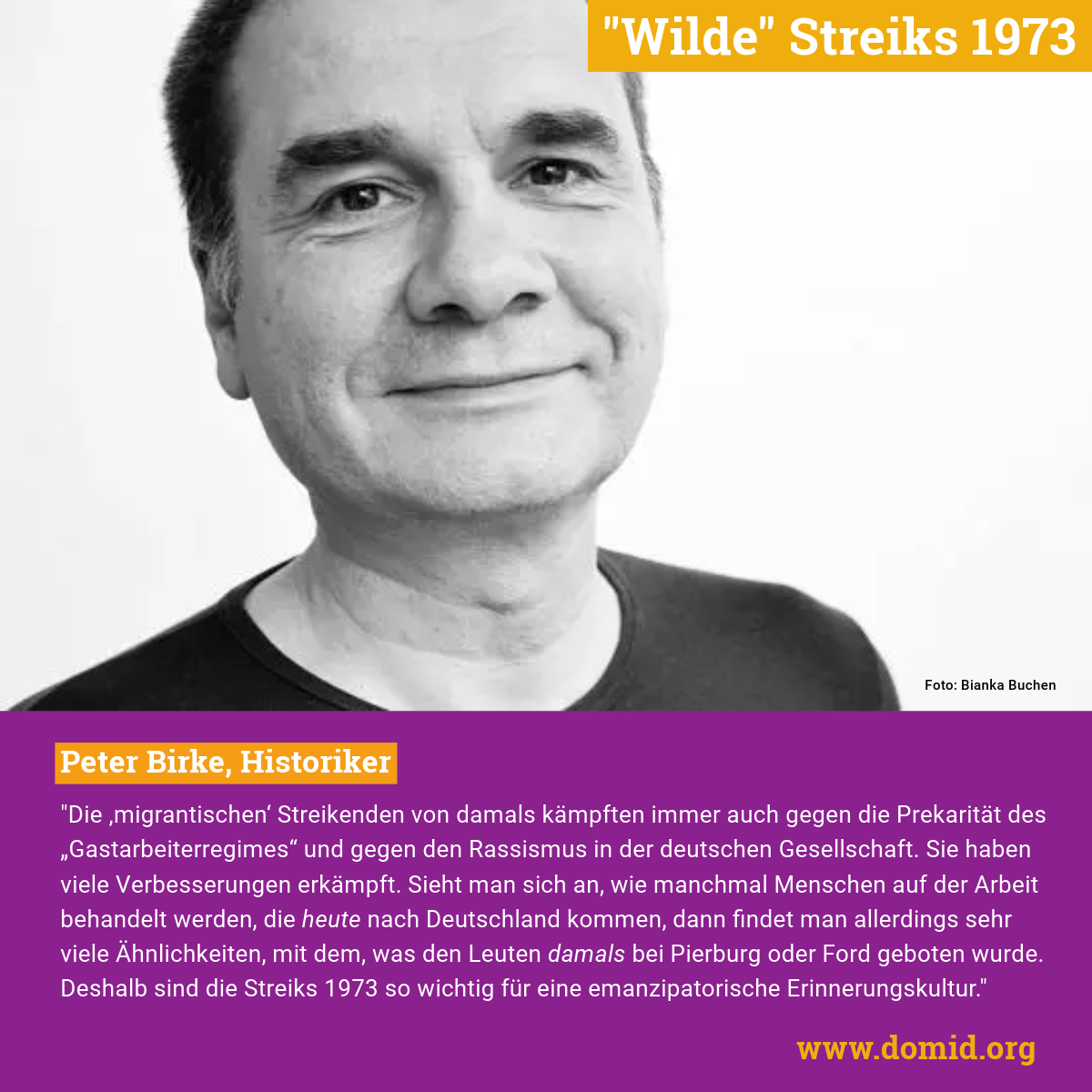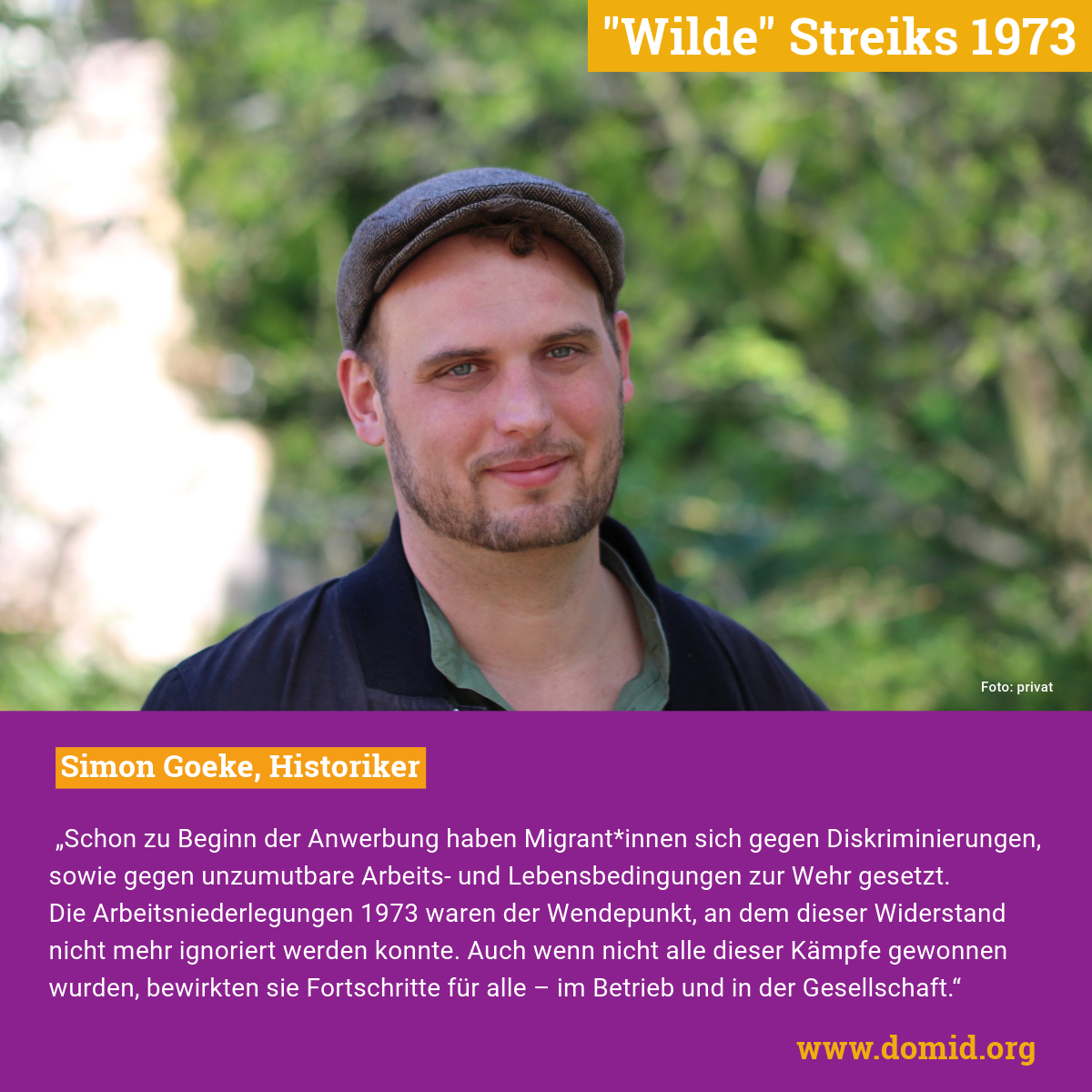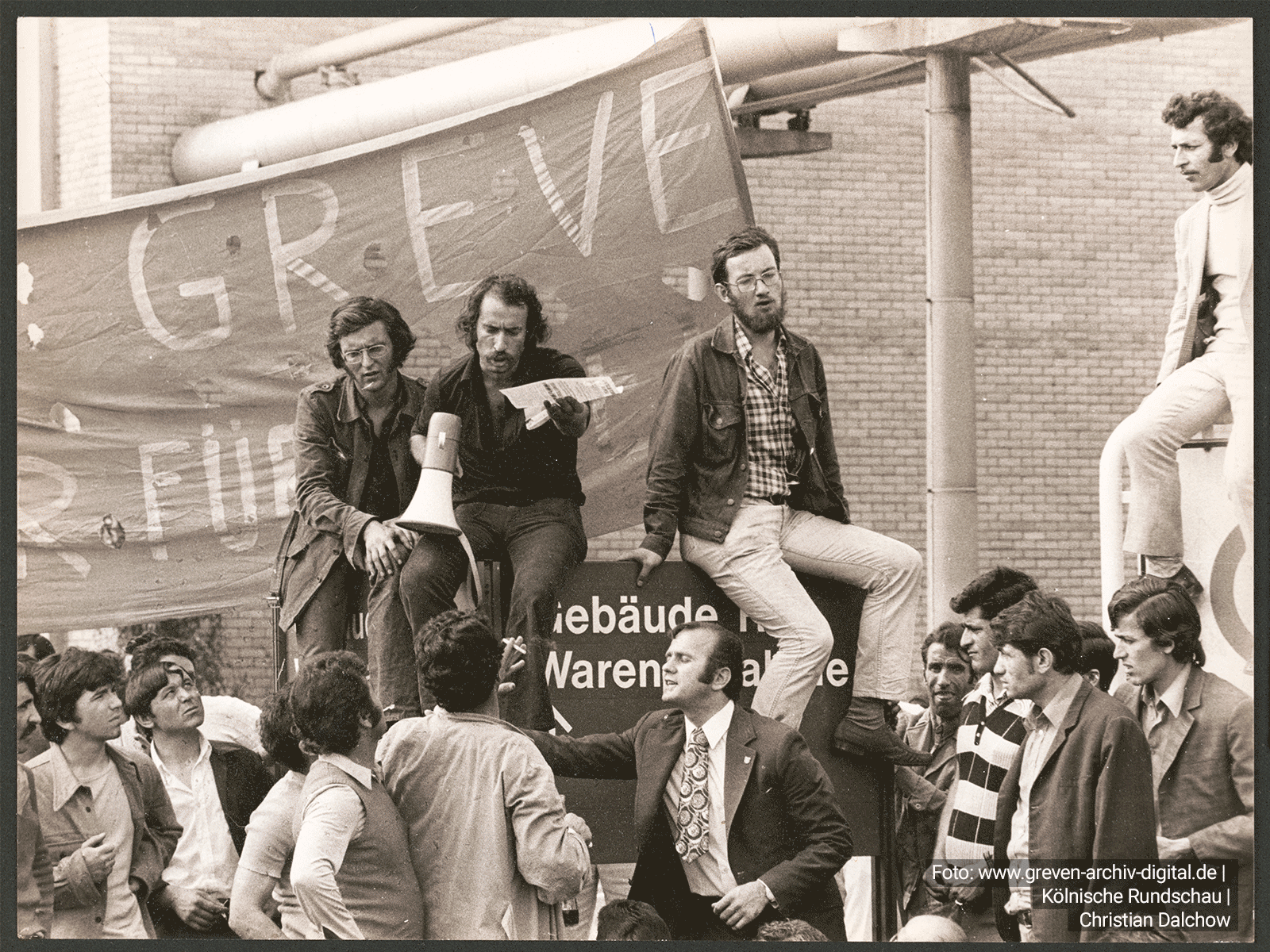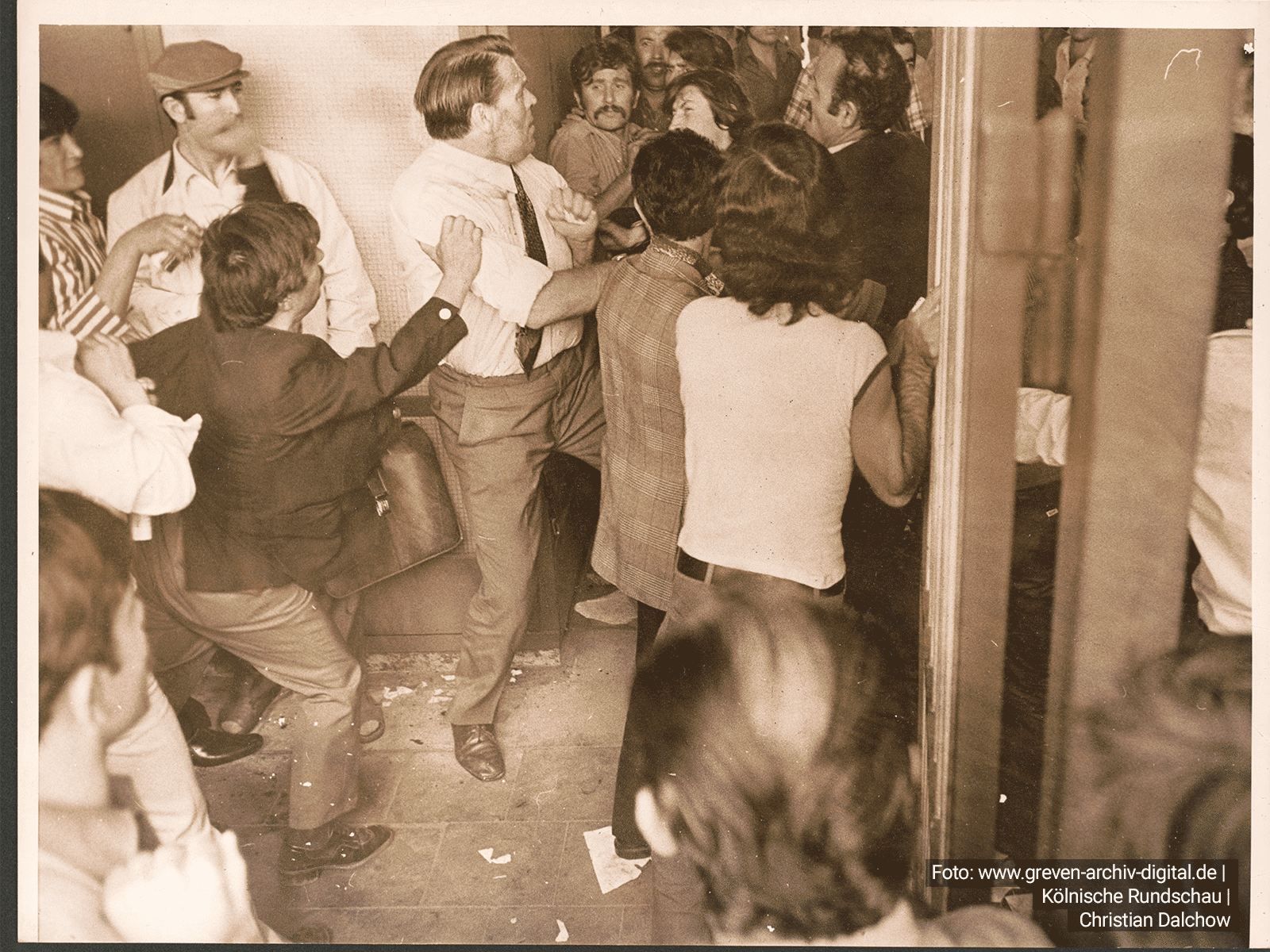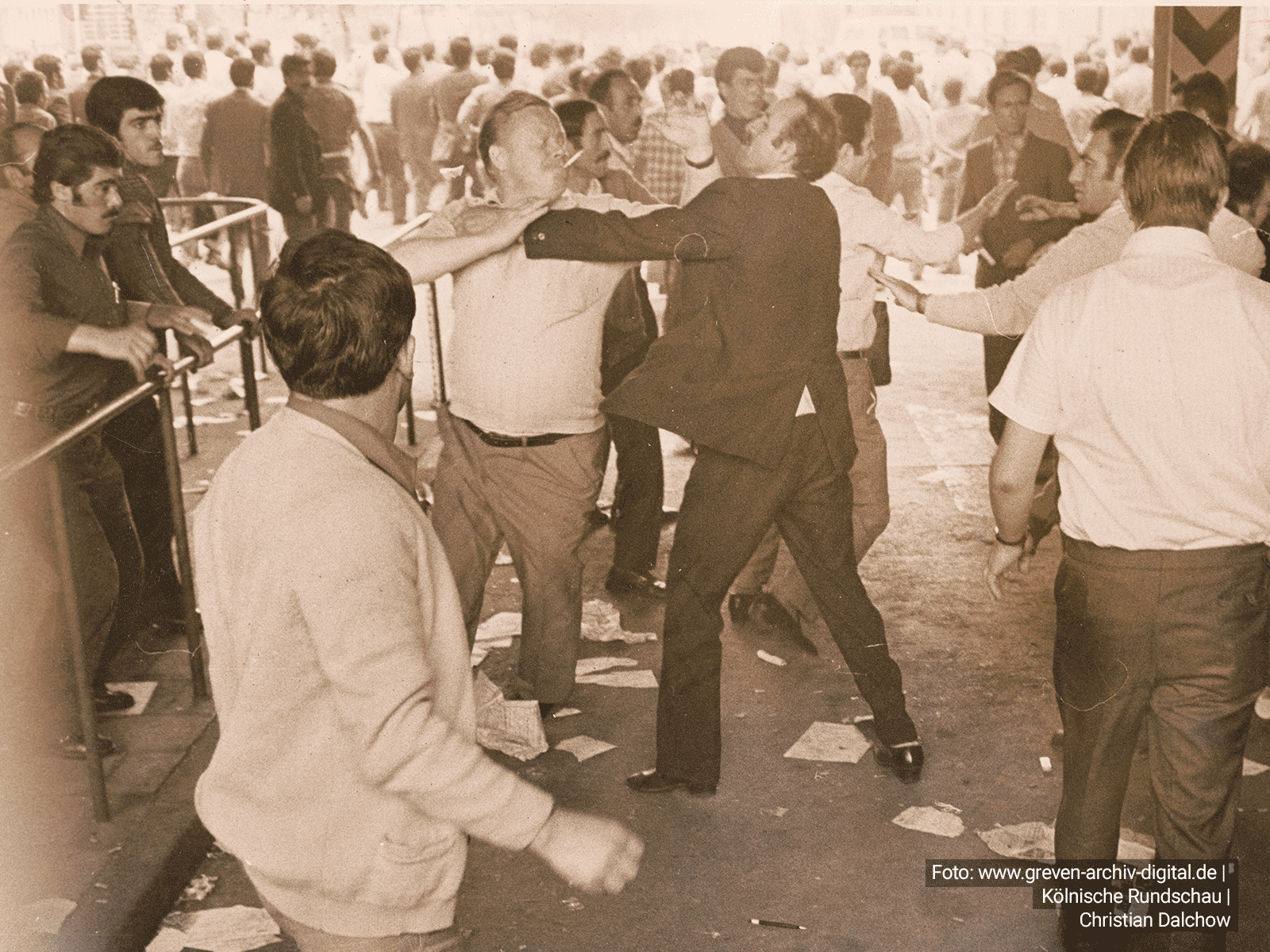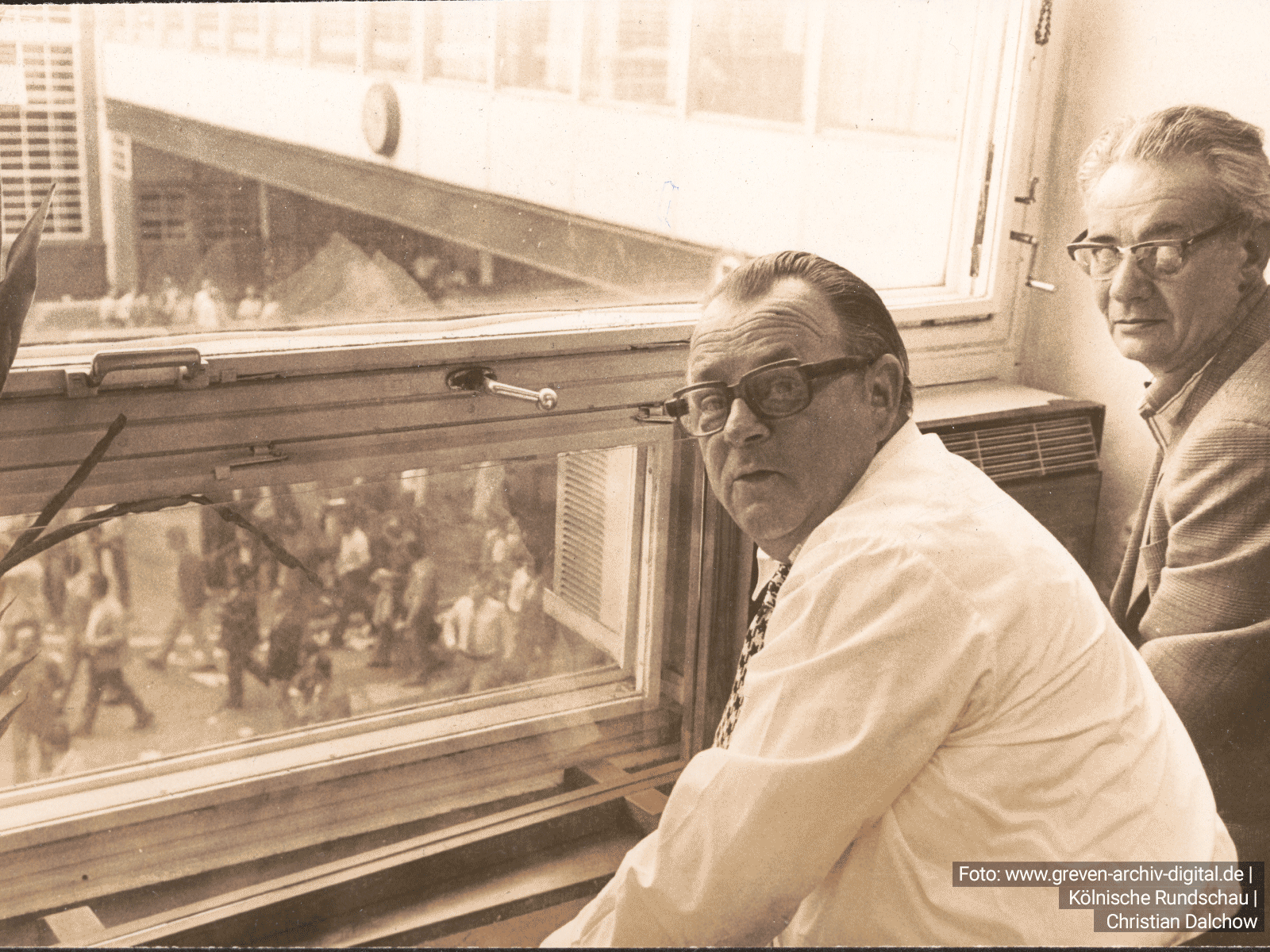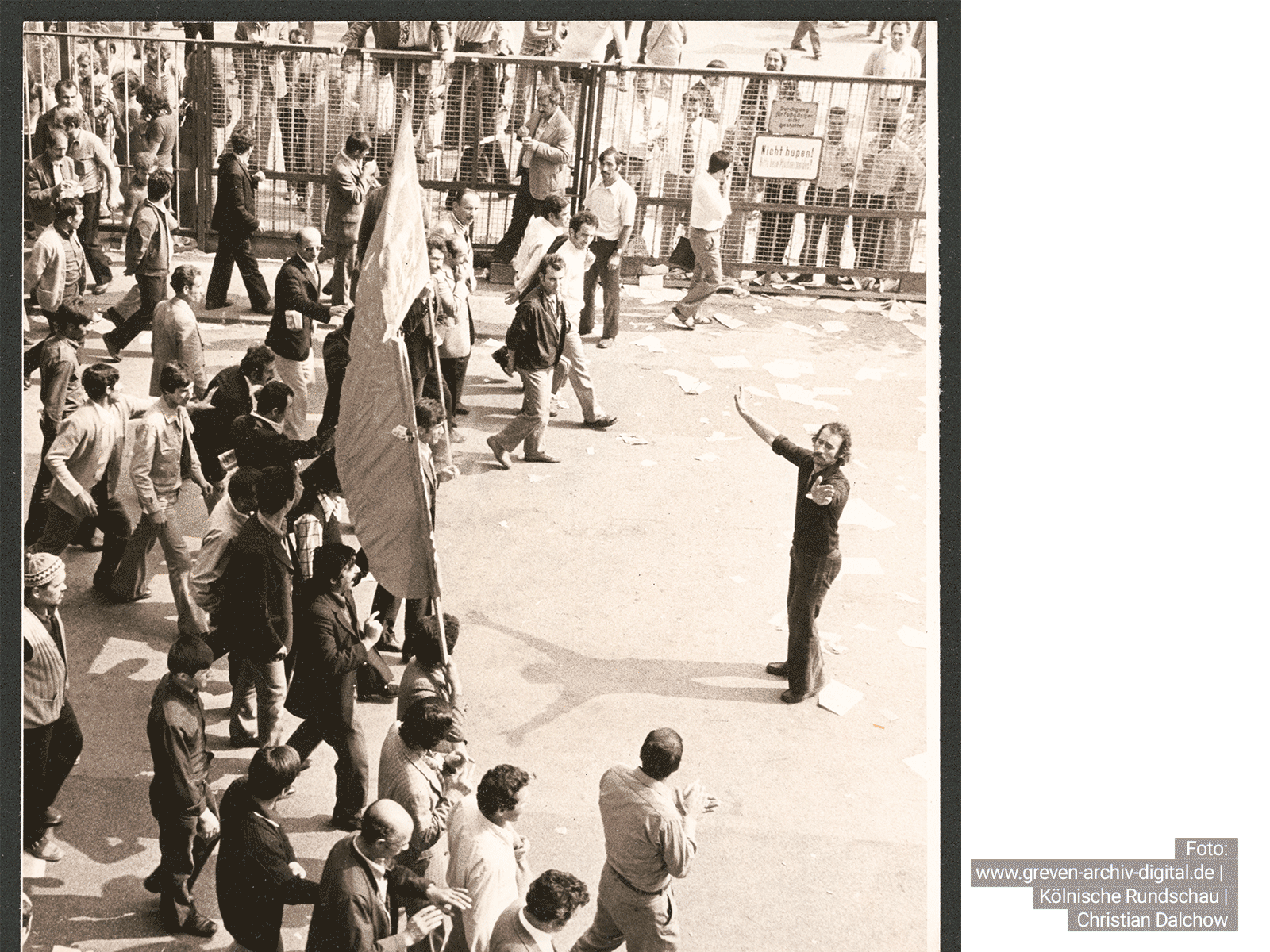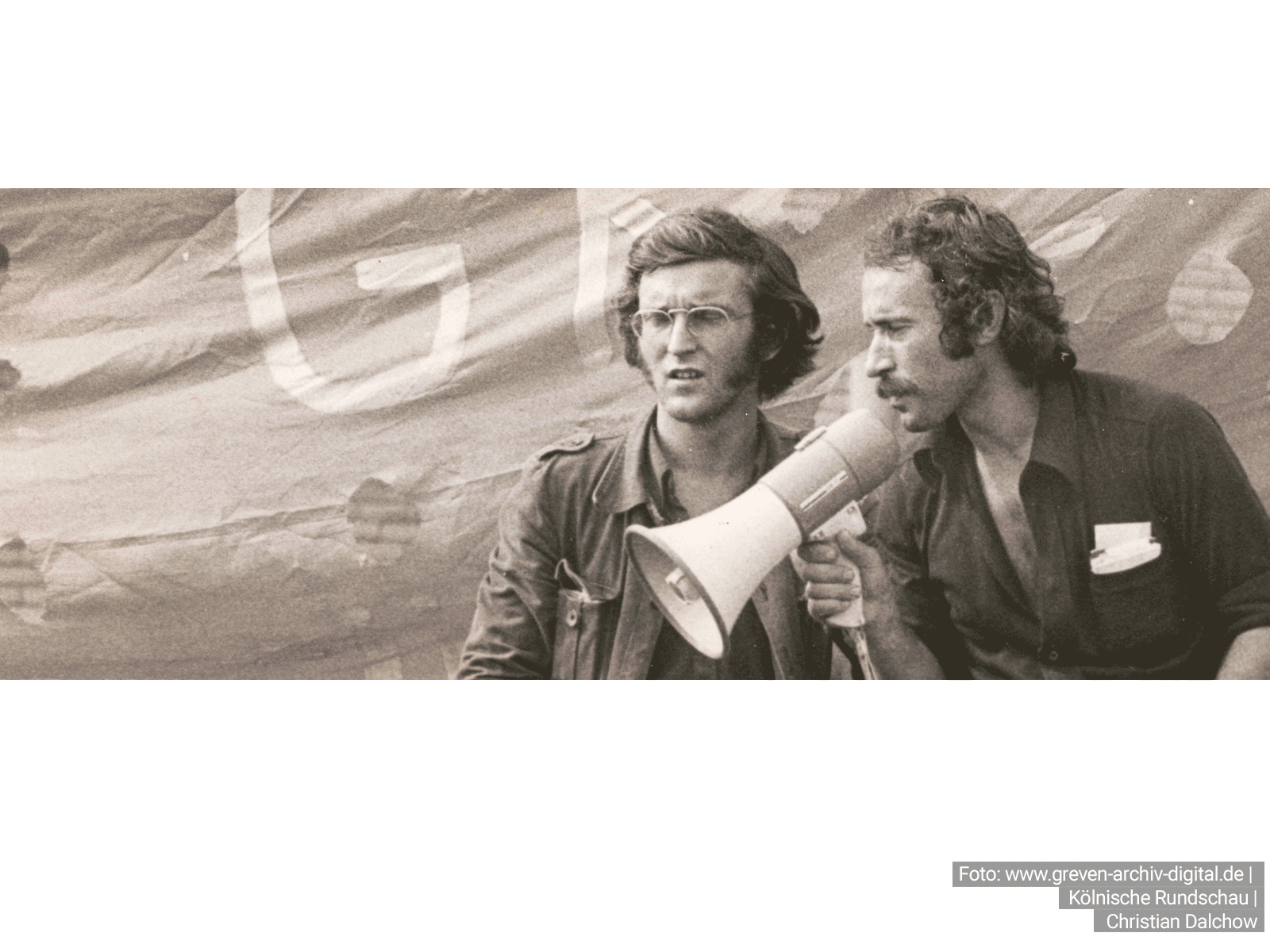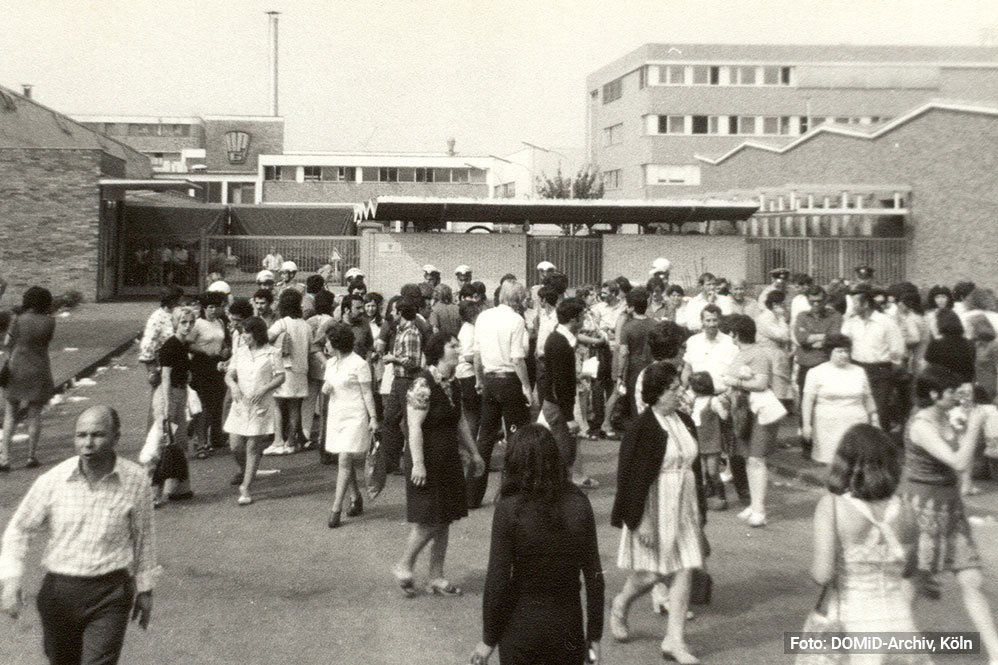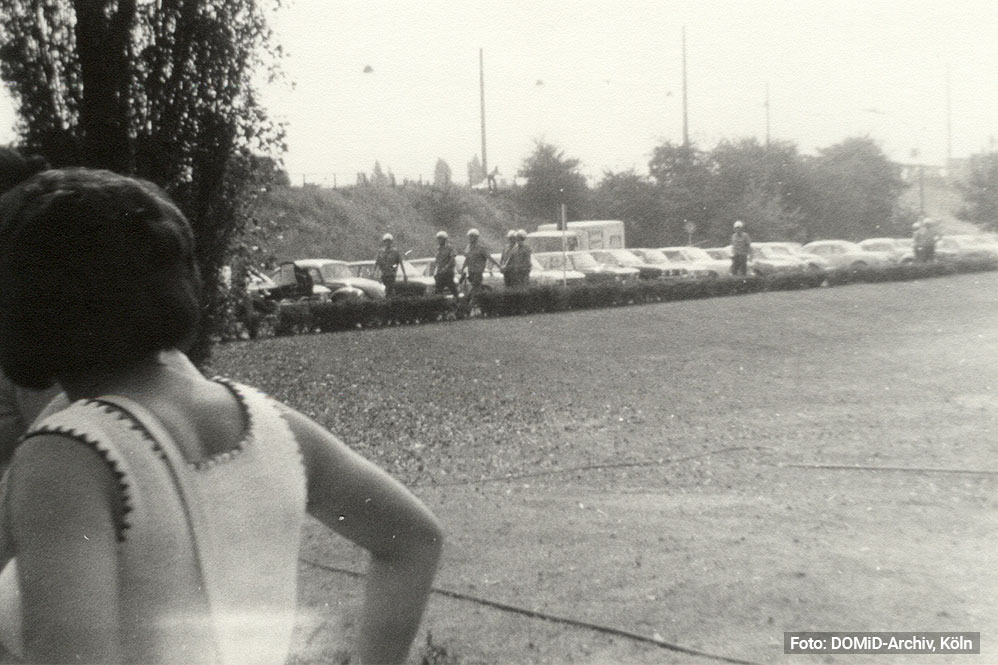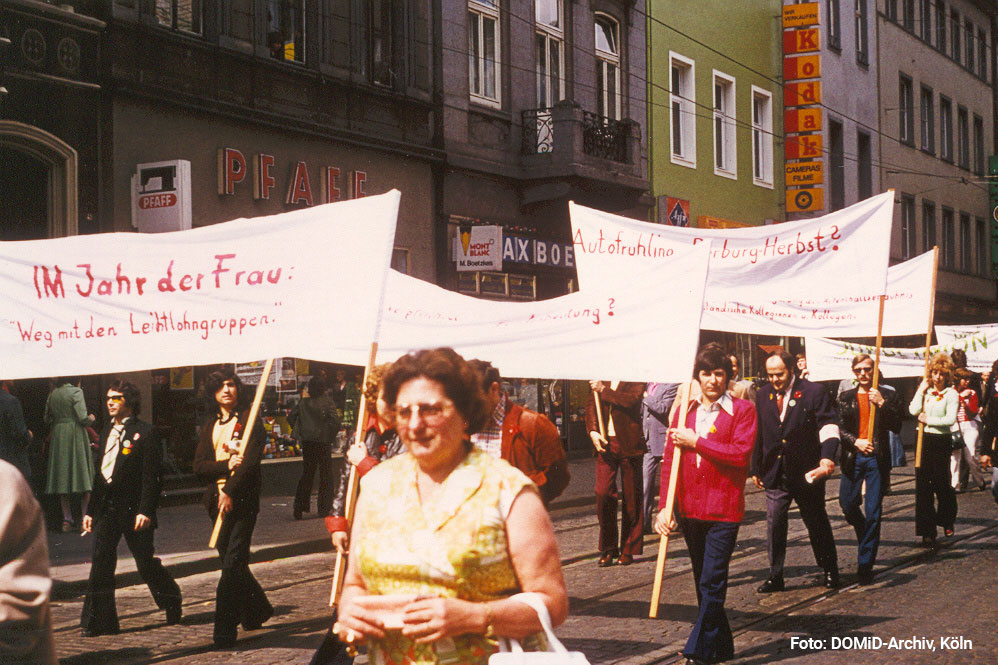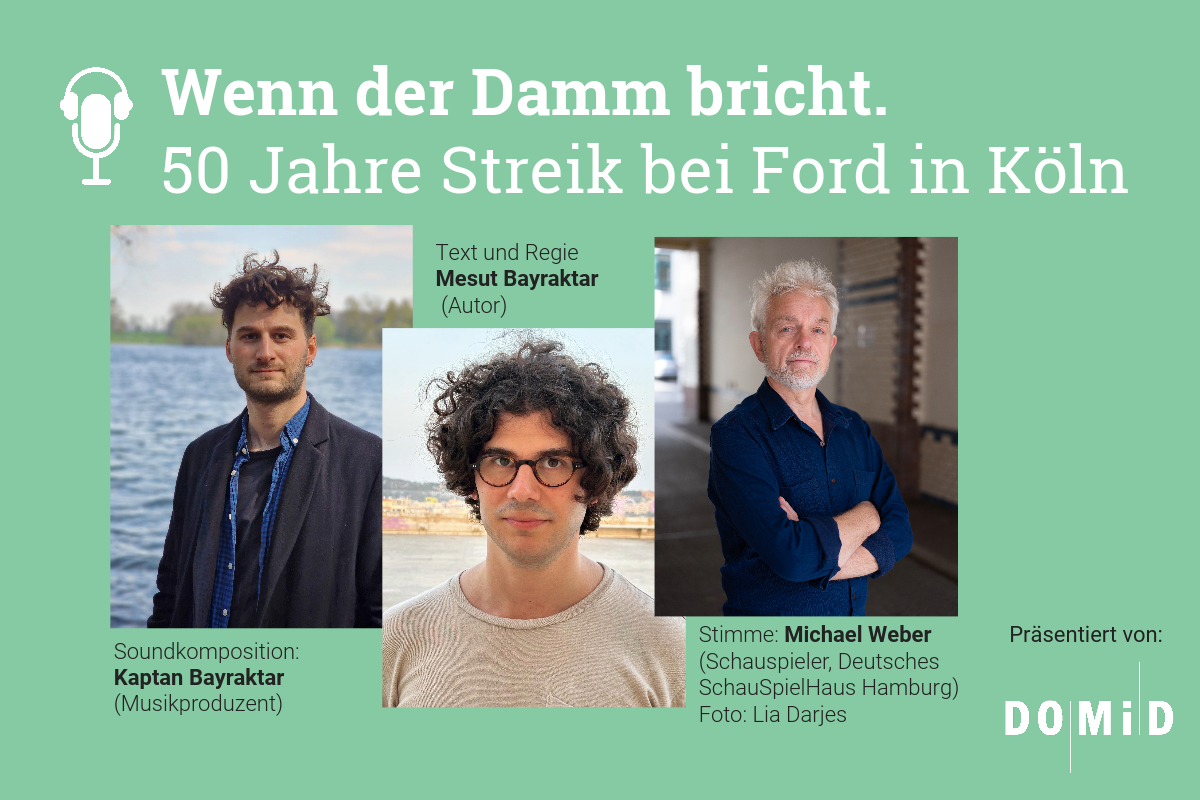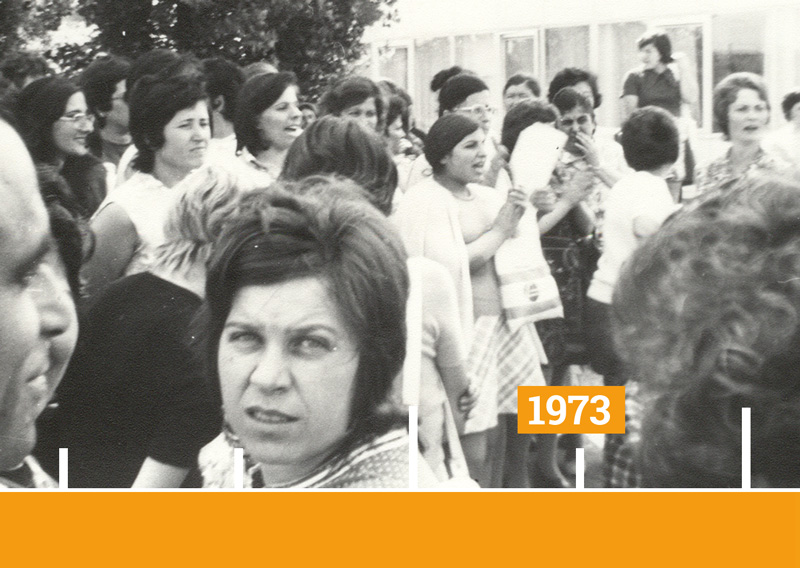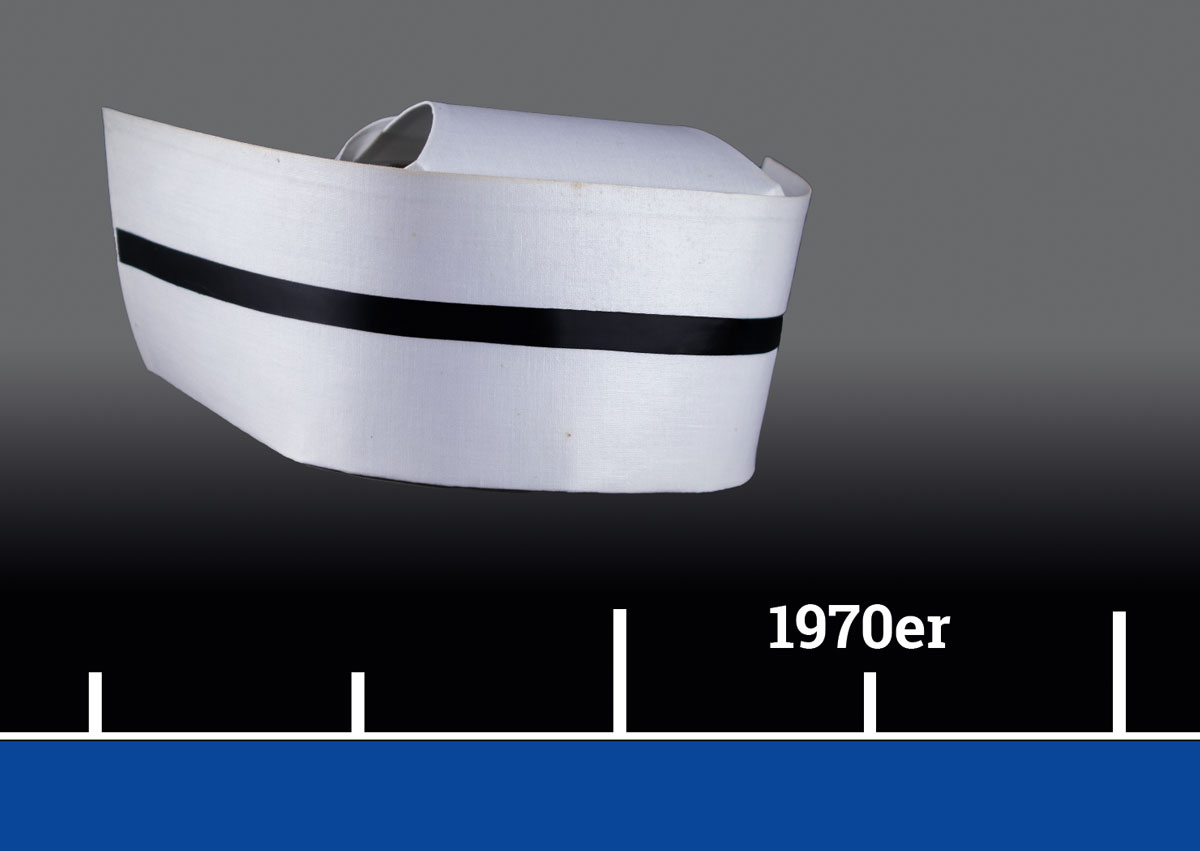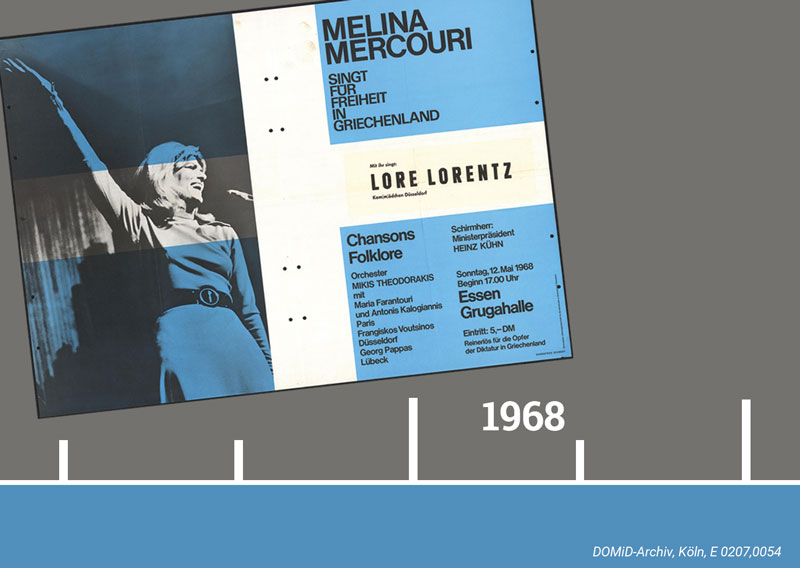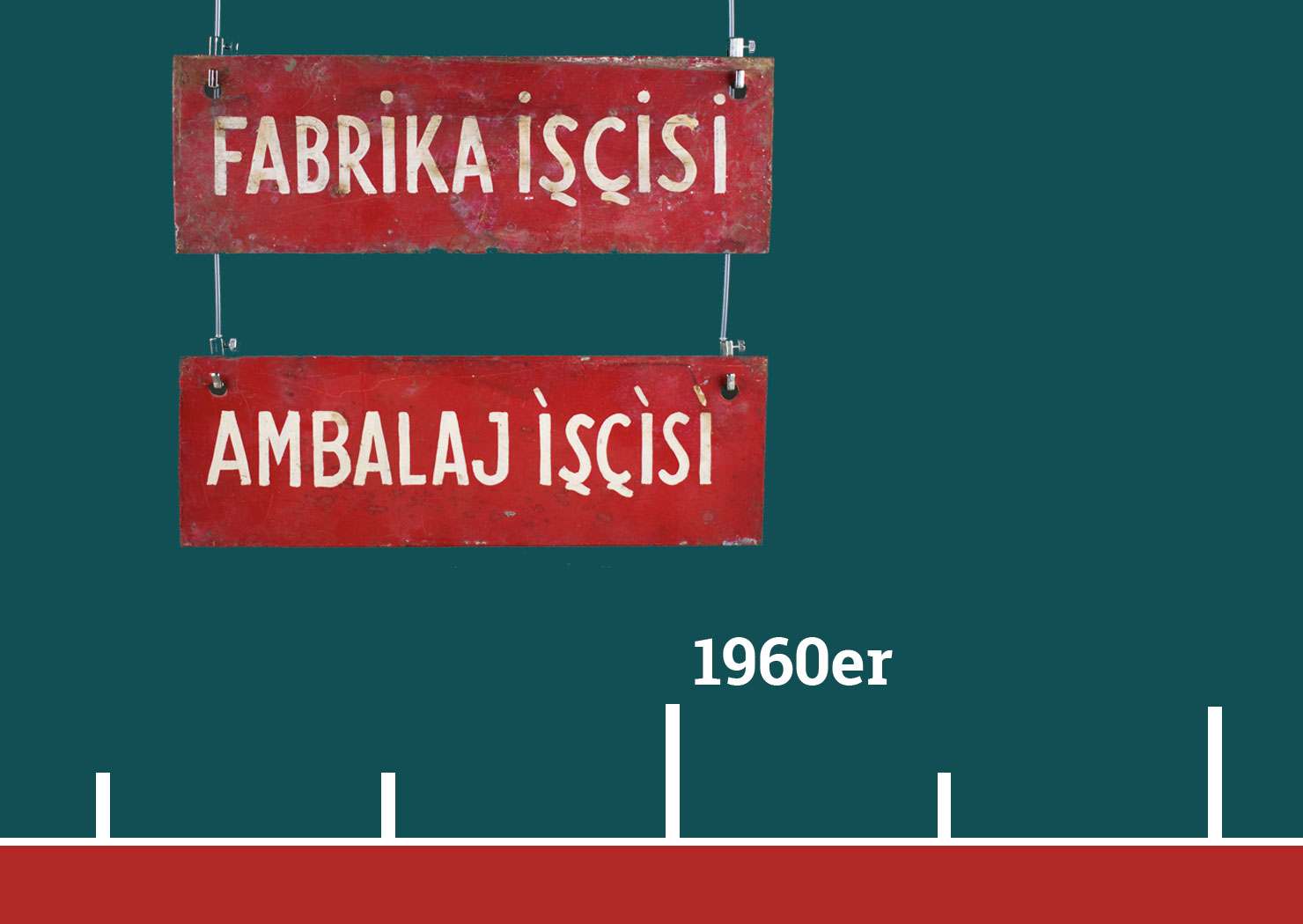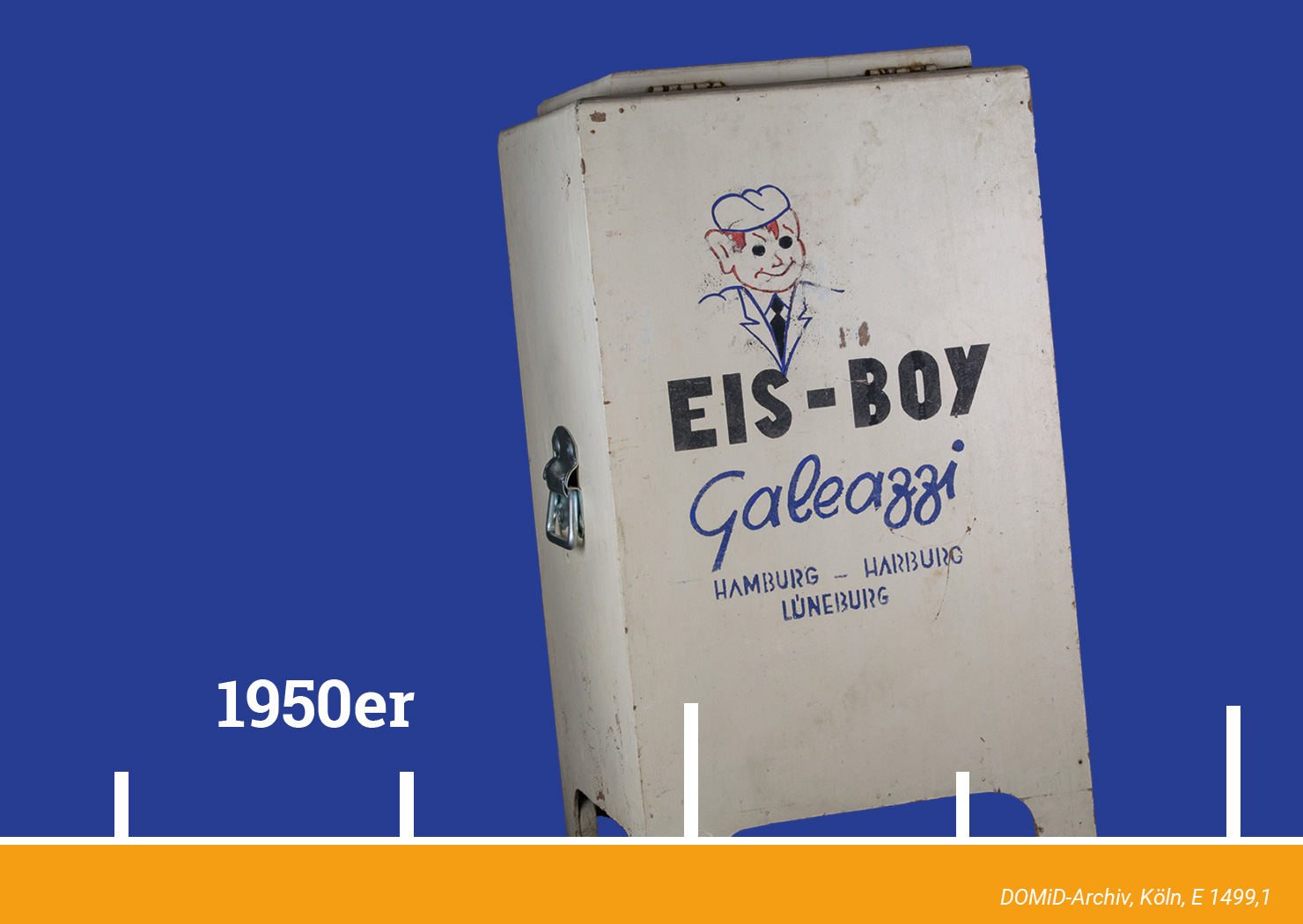Successful and unsuccessful solidarisations. 50 years of spontaneous strikes
August 2023 marks the fiftieth anniversary of the spontaneous strikes at the auto supplier Pierburg in Neuss and at Ford in Cologne, which already attracted a great deal of attention at the time, but in the following decades, due to the disproportionate share of migrants among the strikers and their "unofficial" character - especially at Ford in Cologne - acquired an almost symbolic significance for a more recent political and academic debate and a (post-)migrant activism.
In recent years, the memory of the 1973 strikes has been primarily characterized by making migrant resistance, migrant (labor) struggles, and migrant actors visible and worthy of attention. The 1973 struggles can also be assigned to a longer temporal arc of labor disputes that can be dated, for example, from late summer 1969 ("September strikes") to 1974 (successful ÖTV strike).
On closer examination, the strikes in this phase of the Federal Republic's history cannot be described dichotomously as "wildcat" strikes against the DGB unions and their "legal" labor struggles, but rather show a contradictory interplay rather than a stark contrast. The strike in Neuss, which was predominantly carried by women and was directed against wage group 2, which in fact discriminated exclusively against women, was also successful because the majority of the works council and the local IG Metall union showed solidarity. For today's left struggles, this could be a hint not to operate too much via demands on the state and legislation, but to focus more on the development and implementation of active practices of solidarity in the world of work.
For this to succeed, conditions of solidarity are crucial that allow for unifying struggles. This was successful in Neuss, but not in Cologne. But this difference between successful and failed solidarization should not be expanded into another dichotomy either; valuable conclusions can also be drawn from failure.
We, that is the Rosa Luxemburg Foundation, the Otto Brenner Foundation, the Hans Böckler Foundation, the Foundation for Human Dignity and the World of Work, IG Metall (Executive Board Department Migration and Participation), the IG Metall Düsseldorf-Neuss office, the Institute for Social Movements in Bochum, and the German Labor History Association, are taking the anniversary as an occasion for our conference on September 1 and 2 in Düsseldorf and asking: What is the fascination of these strikes of 1973, and how are they to be assessed today from a historiographical and activist perspective? To what extent can they be productively linked to the current situation?
The conference will begin with a cultural program on the topic on September 1 from 5 p.m. at the DGB-Haus Düsseldorf. The conference will begin on Saturday at 10 a.m. at the same location. Trade unionists, contemporary witnesses, academics and politically active people from different spectrums will engage in discussion in various formats. In addition, a publication from the circle of organizers will appear in the summer.
Program
Friday, September 1:
- 17:30: Arrival
- 6:00 p.m.: Welcome and introduction Nuria Cafaro, Rosa-Luxemburg-Stiftung NRW and Efsun Kızılay, Rosa-Luxemburg-Stiftung (Berlin)
- 18:15: Guest Worker Monologues by Mesut Bayraktar. Came to leave, but stayed. A play. A staged reading. Four characters. Taken together, a chorus. One hour and thirty minutes. Based on authentic sources and poetic fiction. Text and scenic arrangement: Mesut Bayraktar. With: Günfer Cölgeçen, Burçin Keskin, Miriam Meißner, Kutlu Yurtseven. Music: Kaptan Bayraktar | Video: Svenja Hauerstein. The reading lasts 90 minutes. Afterwards there will be an opportunity for exchange.
- 8:30 pm: End
Saturday, September 2
- 10:00 a.m.: Welcome
- Dr. Michaela Kuhnhenne, Hans Böckler Foundation
- 10:10 a.m.: "Migrant Struggles for Recognition and the Role of Trade Unions - a Critical Interim Assessment", Nihat Öztürk, board member of the trade union initiative "Gelbe Hand" and former first authorized representative of IG Metall Düsseldorf-Neuss.
- 10:40 a.m.: Lecture and discussion: "We are all foreign workers!" - 1973 as a European climax of migrant struggles? Dr. Simon Goeke, curator and research assistant for migration history at the Munich City Museum., Moderation: Dr. Salvador Oberhaus, historian, deputy office director of the Rosa Luxemburg Foundation NRW.
- 12:15 p.m. to 1:00 p.m.: Lunch break
- 13:00: Lecture and discussion: "Organization and participation of migrant workers in IG Metall - a success story". With Christiane Benner, Second Chairwoman of IG Metall, Moderation: Dr. Michaela Kuhnhenne, Hans Böckler Foundation
- 2:00 p.m.: "Fraternité. Beautiful Moments in European History." A staged reading from the work of Bernd-Jürgen Warneken.
- 14:30: Lecture and discussion: "Up the international solidarity? Migrant Employment between Fragmentation and the Struggle to Expand the 'We', With Prof. Dr. Nicole Mayer-Ahuja, Professor of Sociology of Work, Business, Economy at the University of Göttingen, Moderation: Dr. Florian Weis, historian, consultant for anti-Semitism and Jewish left history and present / classes at the Rosa Luxemburg Foundation (Berlin).
- 16:00: Coffee break
- 16:15: Successful and unsuccessful solidarizations: The Spontaneous Strikes at Hella (Lippstadt), Pierburg (Neuss) and Ford (Cologne) in 1973 and their Effects
- Nuria Cafaro, historian and board member of the Rosa Luxemburg Foundation NRW, welcomes Irina Vavitsa, former works councilor at Hella, and Dieter Braeg, former works councilor at Pierburg, to the storytelling café. Further guests have been requested. We will start by showing an interview with Hasan Doğan, an activist in the Ford strike.
- 6:45 p.m.: Closing of the event
Registration: https://www.rosalux.de/veranstaltung/es_detail/X6FIX/gelingende-und-misslingende-solidarisierungen?cHash=1df5fa09af6432be1dbc6eab5667037a
Cooperation partners: Rosa Luxemburg Foundation (federal government and North Rhine-Westphalia), Otto Brenner Foundation, Hans Böckler Foundation, Human Dignity and the World of Work Foundation, IG Metall (Executive Board Department Migration and Participation and Düsseldorf-Neuss Office), Institute for Social Movements in Bochum and the German Labor History Association.
